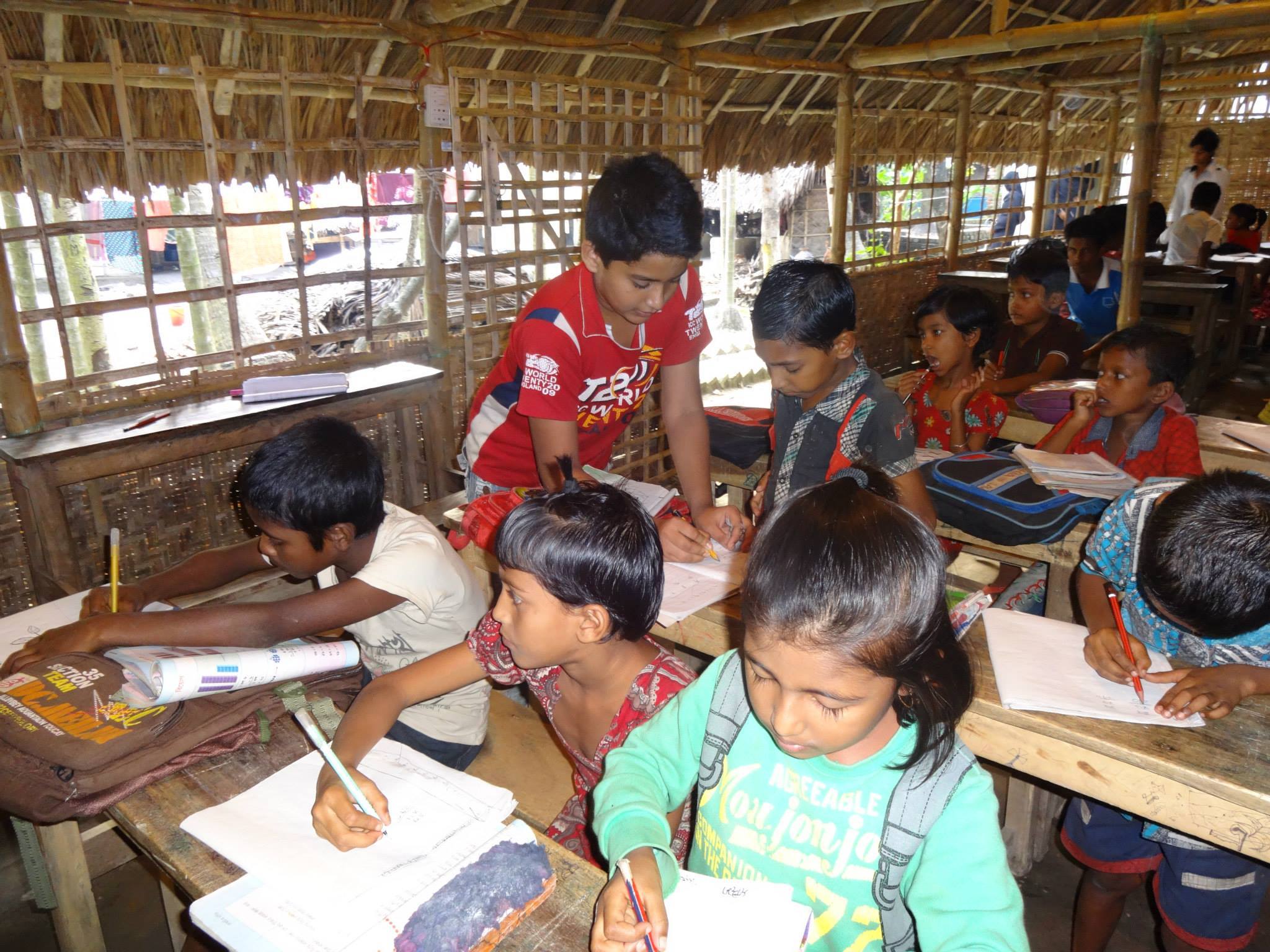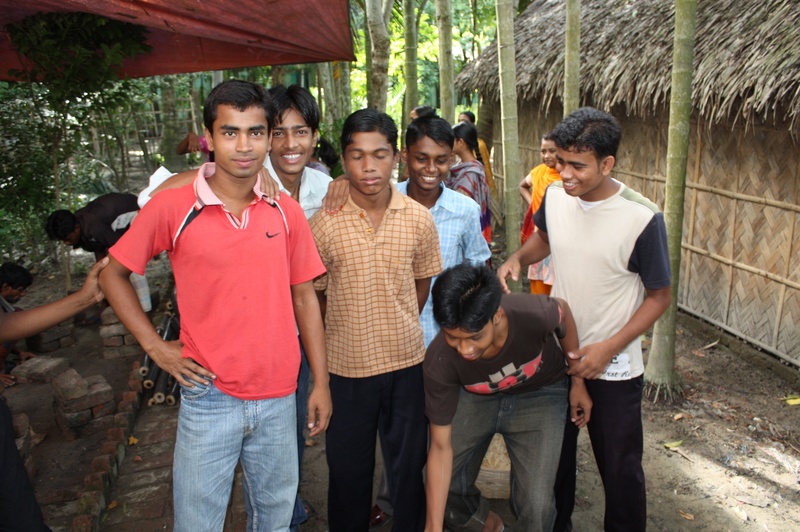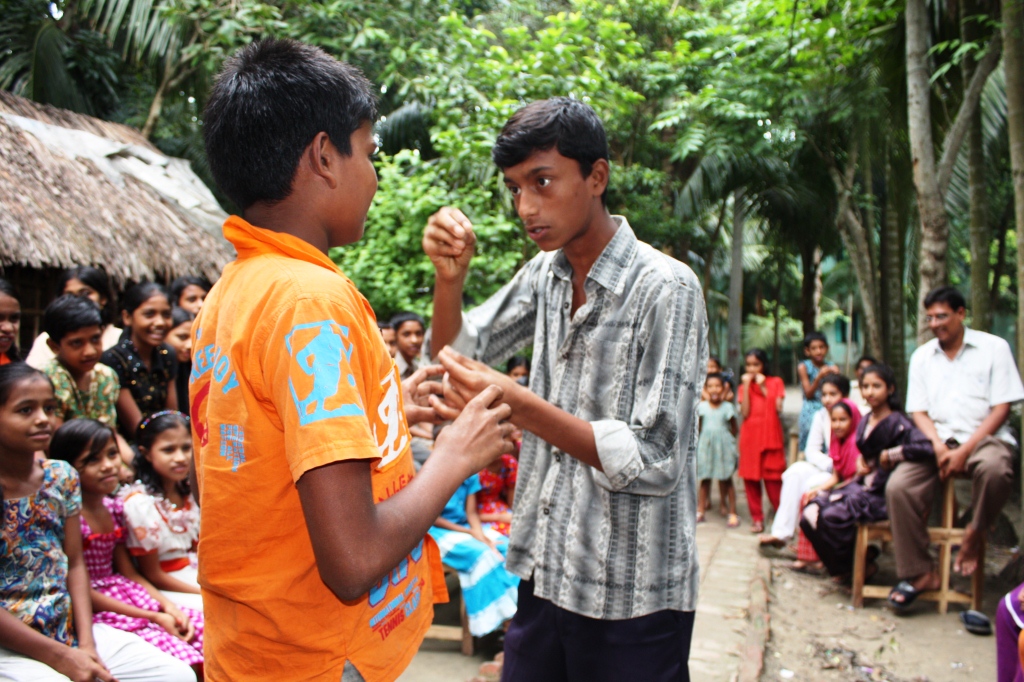How EDS started
I (Hafizur Rahman) am born in Khulna. I struggled so much to get education so nobody thought I would complete primary school. Through hard work I got higher education in Bangladesh, a NORAD scholarship to Norway and I have now a PhD. I wished to help poor children so they will not face the struggle and pressure I faced to get education. I strongly believe that:
Since my childhood I have worked for poor children’s education. In primary school I wondered why my poor friends did not go to school, so I motivated them to start school again. In secondary school I started walking in the neighbourhood in the evenings to collect my friends and bring them to my home to teach them. I created a friendly environment, told stories and made all feel happy and well.
When I was going to Norway (2005) I was teachong 15 poor students, so I motivated one of them, Alamin (grade 10), to teach the others. Alamin was young and afraid because he lacked confidence and teaching experience, but Hafiz motivated him and Alamin started teaching in his bed room. After arrival in Norway I used 166 USD/month (of my 1000 USD/month scholarship) to cover educational costs of EDS and in 2007 I used all my savings (13 000 USD from the NORAD scholarship) to buy a house where the 200 EDS children could be taught.
In Shonali and Ajax jute mills we borrow classrooms. Since 2005 I have guided, motivated and followed up (through mobile, skype, visits) Alamin, poor youth, children, parents and volunteers daily.Alamin has develped 18 honest, dedicated change agents working from their heart to give poor children education and develop their society. EDS is like a chain where I developed Alamin as a change agent, now Alamin develops new change agents and these will develop more change agents.This way EDS spreads in the society like rings on water.
EDS Vision
- To develop young, honest and responsible leaders and change agents who develop their society.
- to assist poor families to improve their livelihood through education.
The EDS students develop educational, social and ethical skills and willingness to help others.
EDS creates
- A good learning environment where children/youth are free from fear, motivated to learn, feel appreciated, develop their self esteem and get responsibilities.
- continuously dialogues with the EDS students' parents to make them see that and how they can support their children's education
- closely follow up EDS students and their parents for a positive development. We create hope and make children/youth and their parents believe that they can improve their situation.
EDS Values
Equality & Non-discrimination
EDS works for equalty. In EDS no students shall be discriminated against on the basis of race, religion, ethnicity, gender, political or sexual orientation, marital status, physical or mental ability.
To achieve equality and non-discrimination EDS:
- has students of different religious and ethnical backgrounds, of different political orientation and gender studying and playing together.
- educates the students to respect and accept each other regardless of differences.
- occasionally invites rich children to EDS activities to minimize the gap between socio-economic classes
- encourage parents to let girls study instead of marrying them off at young ages
EDS Values
Cooperation - Helping others
EDS works to increase the students', their parents' and other community members' ability and willingness to cooperate and help each other for development.
To achieve this EDS:
- Let students arrange cultural and sports activities where they learn to follow the rules, be leaders and inclusive team players.
- Let the students be responsible for teaching and helping each other.
- gives the students the responsibilities during EDS events.
- gives the oldest students the responsibility of leading the EDS group in their area
- motivates the students to respect and behave well with their parents and others.
In addition EDS:
- motivates the students' parents to motivate and guide their children by positive motivation instead of punishing them (physically and psycologically) for bad behaviour.
- involves community members to volunteer and make them realize how they can use their skills to help the EDS participants
Our future plans
Expansion of EDS
Since 2005 we have opened EDS branches in Moheswasrpasha, Shonali jute mills, Ajax jute mills, Digholia, Teligathi and in Bagerhat. Our aim is to develop firm support for education in the areas where we operate and expand to further areas to reach more children and youth. We wish to expand EDS to the entire country, especially to the poor areas.
Links between university teachers & EDS students
We will establish contact to university teachers who may teach the EDS students voluntarily. In this way the EDS students will be more aware about the possibilities and requirements for university studies. When the EDS students reach university level they will teach the 9th, 10th, 11th and 12th grade EDS students and receive a small remuneration so they can pay for their own university studies.

Educational games & science experiments
In Bangladesh teaching is mainly done by blackboard and chalk. We will make educational games so the EDS students can learn in more active ways by using various sences. We also wish to access simple equipment to conduct experimnets in the natural sciences. We will make booklets with natural science experiments and with educational games to inspire the EDS studnet teachers and university volunteers to teach in ways that activates the EDS students.
Sustainable food production in EDS
We will expand and develop the cultivation of crops, fish breeding and maybe include small animals. The aim is to teach the EDS students about sustainable food production and concepts like agro-ecology, permaculture and seed bank in practical ways. We will also teach the EDS students about nutrition and encourage them to create gardens at home to increase their nutritional intake.



